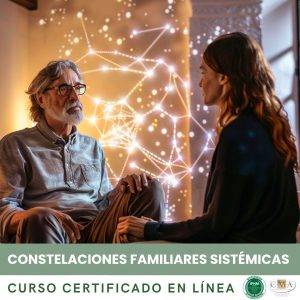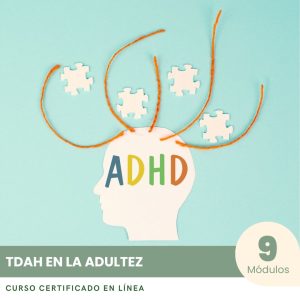
The practice of laughter therapy involves significant ethical and deontological responsibility, which engages the quality and safety of the interventions, as well as the respect and dignity of the individuals accompanied. The laughter therapist must therefore adhere to a set of principles and rules that guarantee the professionalism and integrity of their posture.
The first ethical principle is that of benevolence and non-maleficence. The laughter therapist must always act in the interest and for the well-being of participants, ensuring that they do not harm them with inappropriate or risky interventions. This involves respecting medical and psychological contraindications, ensuring informed consent of participants, and adapting the exercises to the needs and limitations of each individual. For example, faced with a person suffering from social anxiety, the laughter therapist must create a secure and progressive framework, by proposing gradual exercises and respecting the person’s rhythm and resistances.
The second principle is that of autonomy and freedom of choice of participants. The laughter therapist must respect the right of each individual to freely decide on their participation in the sessions, without pressure or manipulation. They must clearly inform the participants of the objectives, the course and the limits of laughter therapy, and obtain their explicit agreement. They must also ensure that everyone feels free to participate at their own level, to take breaks or to leave the session at any time. Laughter should never be imposed or forced, but naturally emerge from a feeling of trust and sharing.
The third principle is that of confidentiality and respect for privacy. The laughter therapist is bound by professional secrecy regarding personal and sensitive information shared by participants during the sessions. They must create a framework of trust and discretion, where everyone feels free to express themselves without fear of judgement or dissemination. Personal data must be protected and only shared with the explicit agreement of the individuals concerned, or if the law requires it. For example, if a participant reveals an abusive situation, the laughter therapist must assess the danger and, if necessary, report it to the relevant authorities.
The fourth principle is that of competence and professional responsibility. The laughter therapist must be trained and qualified to practice their role, achieving the necessary knowledge and skills. They must respect the limits of their field of intervention, and guide participants towards other professionals when their situation exceeds their area of proficiency. They must also stay informed about scientific advancements and best practices in their field, and regularly update their knowledge. Their responsibility is involved in the security and quality of their interventions.
The fifth principle is that of equity and non-discrimination. The laughter therapist must welcome and accompany each individual with the same respect and consideration, regardless of their age, gender, origin, culture, religion, sexual orientation, physical appearance or social status. They must be aware of their own stereotypes and prejudices, and ensure not to let them influence their practice. They must also be sensitive to cultural differences in laughter expression and perception, and adapt their interventions accordingly. Laughter therapy should be an inclusive and caring space, where everyone feels recognised and valued for their uniqueness.
Beyond these general principles, the laughter therapist must comply with deontological rules specific to their profession. They must respect the practice standards defined by recognised associations and training bodies, such as Laughter Yoga International or the French Association of Laughter Yoga. These standards detail conditions of practice, hygiene and safety rules, methods of communication and promotion of the activity, as well as procedures for handling complaints and conflicts.
The laughter therapist must also ensure the quality of their relationship with participants, by maintaining a professional, empathetic and adjusted posture. They must be aware of the asymmetry of the therapeutic relationship and avoid abusing it to satisfy their own emotional or narcissistic needs. They must establish and respect a clear and stable framework, by defining the group rules, the practical modalities of the sessions, and the limits of their intervention. They must also know how to end the therapeutic relationship in an appropriate and gradual manner, by preparing and accompanying the participants in this transition.
Finally, the laughter therapist must cultivate reflective practice and personal lifestyle that support their balance and professional effectiveness. They must be attentive to their own emotions, limitations and areas of fragility, and know how to take care of themselves to ward off risks of exhaustion or projection onto participants. They must also nourish their own practice of laughter and joy, by cultivating a positive and caring outlook on themselves and the world. Because it is by embodying the values and benefits of laughter that they can transmit them with authenticity and consistency.
In summary, ethics and deontology are essential dimensions of laughter therapist practice, which ensure the quality of their interventions towards the well-being of the individuals they accompany. By integrating these principles into their posture and daily practice, laughter therapists develop a unique therapeutic and relational expertise that makes laughter a real art of taking care of oneself and others.
Key points to remember:
– The laughter therapist must respect fundamental ethical principles: benevolence and non-maleficence, autonomy and freedom of choice for participants, confidentiality and respect for privacy, professional competence and responsibility, equity, and non-discrimination.
– They must comply with deontological rules specific to their profession, defined by recognised associations and bodies, concerning conditions of practice, hygiene and safety rules, communication and promotion of the activity, as well as the handling of complaints and conflicts.
– The quality of the relationship with participants is essential: empathetic and adjusted professional posture, respect for the therapeutic framework, appropriate management of the end of the relationship.
– The laughter therapist must cultivate reflective practice and a personal lifestyle to support their balance and professional effectiveness, by being attentive to their own emotions and limitations.
– By integrating these ethical and deontological principles into their daily practice, the laughter therapist develops unique therapeutic and relational expertise in service of the well-being of the individuals they accompany.
👉 To download docx (Editable) file click here : Click here
👉 To download PDF file click here : Click here
👉 To download MP3 file click here : Click here



















































































